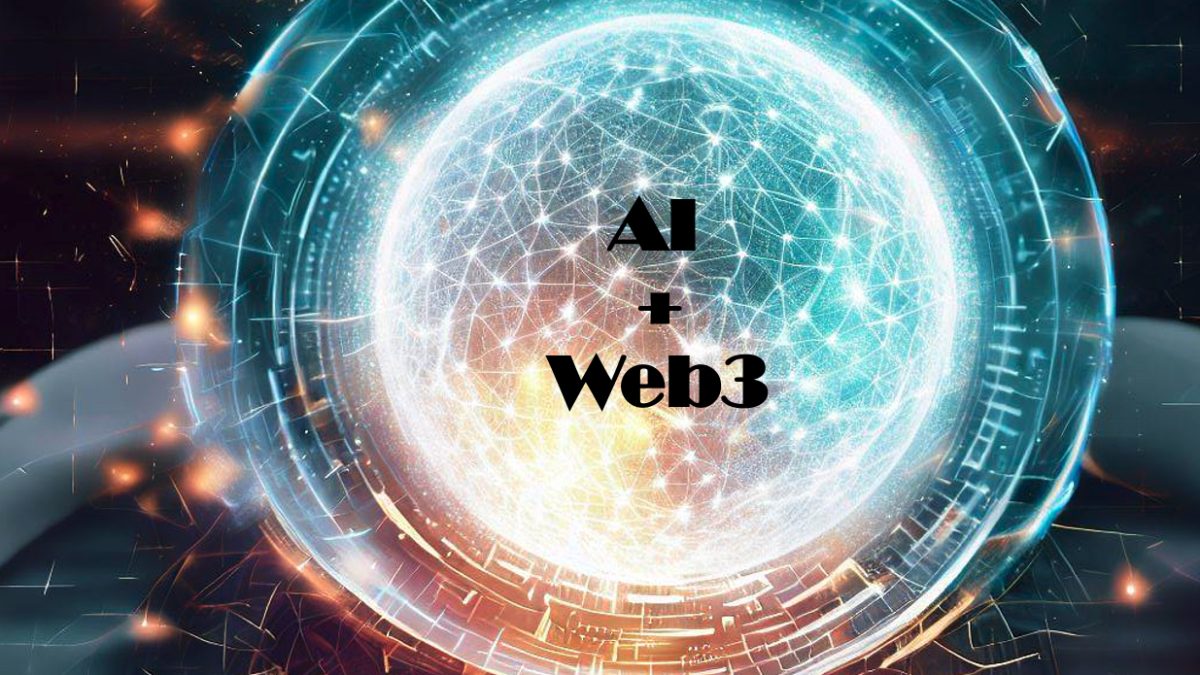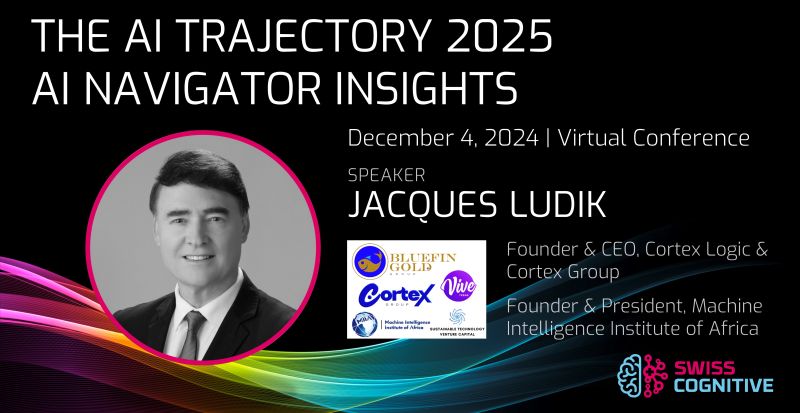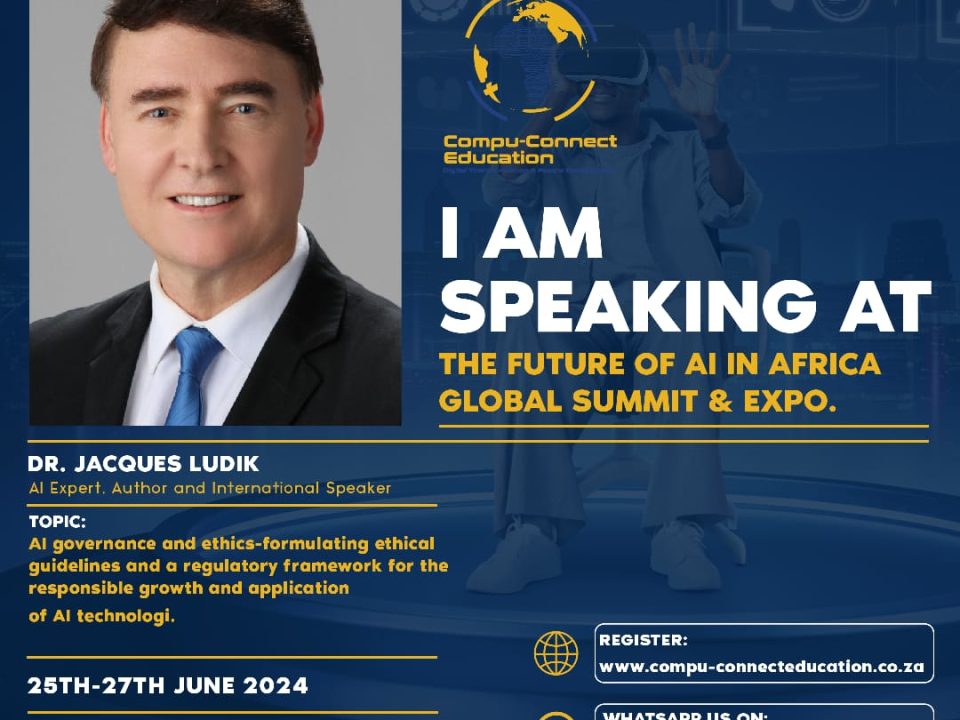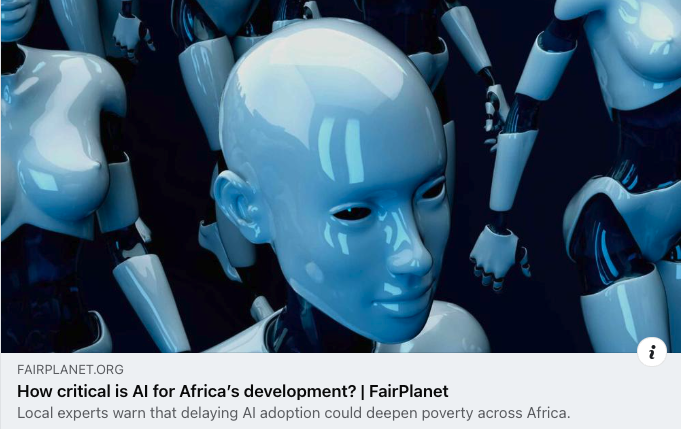Digital First Magazine (30 May 2023): AI and Web3: The Next Generation of the Internet for a Decentralized World
Artificial intelligence (AI) and Web3 are two of the most transformative technologies of our time. AI has already become a central building block of the world’s software, with PwC estimating that by 2030, AI will contribute a staggering $15.7 trillion to the global economy, resulting in a 14% increase in global GDP. As we transition to Web3, the decentralized web, AI will play an increasingly important role in shaping the landscape of our digital world.
AI refers to the development of computer systems capable of performing tasks that typically require human intelligence, such as reasoning, learning, and problem-solving. AI is rapidly advancing and is already being used in a wide range of applications across most industries as also discussed in my book “Democratizing Artificial Intelligence to benefit Everyone: Shaping a Better Future in the Smart Technology Era”, as well as the articles “The Power of Generative AI: Exploring its Impact, Applications, Limitations, and Future“, “AI Revolutionizing Personalized Engagement for Consumer Facing Businesses“, “AI-powered Process and Equipment Enhancement across the Industrial World“, “Ultra-personalized AI-enabled Education, Precision Healthcare, and Wellness“, and “AI’s Impact on Society, Governments, and the Public Sector“. Web3 is a new vision for the internet that aims to create a more decentralized, secure, and user-centric digital ecosystem. Web3 is built upon blockchain technology and other decentralized protocols, which enable the creation of trustless, transparent, and censorship-resistant applications and services.
As we stand on the cusp of a new technological era, the fusion of AI and Web3 has the potential to revolutionize the way we interact with the internet and with each other. The vision for this new, blockchain-based web includes cryptocurrencies, NFTs, DAOs, decentralized finance, and more, offering a read/write/own internet that is more equitable and secure for all users. AI can be used to power new applications and services that are more personalized, efficient, and secure. Web3 can provide a more open and democratic platform for innovation. The convergence is indeed paving the way for a new era of decentralized innovation, transforming industries and empowering individuals, as well as creating a decentralized world where intelligence meets trust. This topic was also discussed in a recent webinar AI and Web3 – A Perfect Match? (1.Introduction; 2. Thoughts on ChatGPT; 3. Thoughts on Call for Pause on AI; 4. Adapt with AI Advancement; 5. Closing Thoughts).
The Potential Benefits and Challenges of AI and Web3
The combination of AI and Web3 has the potential to offer a number of benefits, including: (1) Personalized experiences: AI can be used to personalize the user experience on the internet. For example, AI can be used to recommend products and services that are relevant to the user’s interests. (2) Efficiency: AI can be used to automate tasks and make the internet more efficient. For example, AI can be used to automate customer service tasks or to generate content. (3) Security: AI can be used to improve the security of the internet. For example, AI can be used to detect fraud or to identify malicious activity. (4) Democracy: Web3 can provide a more open and democratic platform for innovation. This is because Web3 is based on decentralization, which means that there is no central authority that controls the internet.
There are a number of challenges that need to be addressed in order to realize the full potential of AI and Web3. These challenges include: (1) Data privacy: AI algorithms require large amounts of data to train. This raises concerns about data privacy. (2) Bias: AI algorithms can be biased. This is because they are trained on data that is collected from the real world, which is often biased. (3) Regulation: AI and Web3 are new technologies and there is a lack of regulation in this space. This could lead to problems such as fraud and abuse.
The Spatial Web – Designing Ecosystems of Intelligence from First Principles
In my article “Human Intelligence versus Machine Intelligence” I reference VERSES.AI‘s approach to AI and Web3 in the Designing Ecosystems of Intelligence from First Principles whitepaper (authored by Karl Friston, the founders of VERSES and others) where they propose that the ultimate form of AI will be a distributed network of “ecosystems of intelligence” where collectives of Intelligent Agents, both human and synthetic, work together to solve complex problems. They call this ecosystem “The Spatial Web” which contains a comprehensive, real-time knowledge base—a corpus of all human knowledge that is accessible to anyone and anything. To enable the most efficient communication between Intelligent Agents on the Spatial Web, VERSES proposes that new communication protocols are necessary. Previous internet protocols were designed to connect pages of information, while the next generation of protocols need to be spatial, able to connect anything in the virtual or physical world. A hyper-spatial modeling language (HSML) and transaction protocol (HSTP) will transcend the current limitations of HTML and HTTP, which were not designed to include multiple dimensions, and which were mostly limited to text and hypertext. The white paper envisions a cyber-physical ecosystem of natural and synthetic sense-making, in which humans are integral participants—what they call ”shared intelligence”. This vision is premised on active inference, a formulation of adaptive behavior that can be read as a physics of intelligence, and which inherits from the physics of self-organization. This framework is based on the idea that Intelligent Agents, such as robots or software programs, should act in a way that maximizes the accuracy of their beliefs and predictions about the world, while minimizing their complexity. In this context, they understand intelligence as the capacity to accumulate evidence for a generative model of one’s sensed world—also known as self-evidencing.
According to VERSES.AI, the evolution of machine or synthetic intelligence includes key stages of development: (1) Systemic intelligence (Ability to recognize patterns and respond. Current state-of-the-art AI; (2): Sentient intelligence (Ability to perceive and respond to the environment in real time); (3): Sophisticated intelligence (Ability to learn and adapt to new situations). (4): Sympathetic (or Sapient) intelligence (Ability to understand and respond to the emotions and needs of other); (5): Shared (or Super) intelligence (Ability to work together with humans, other agents and physical systems to solve complex problems and achieve goals).
The necessary guard rails for an AI-enabled decentralized Web3 world would need to implement a trustworthy AI framework that covers ethical, robust, and lawful AI. To strengthen the guard rails further, I also propose a Massive Transformative Purpose for Humanity (that is aimed at evolving a dynamic, empathic, prosperous, thriving, and self-optimizing civilization that benefits everyone in sustainable ways and in harmony with nature) and associated goals that complement the United Nations’ 2030 vision and SDGs to help shape a beneficial human-centric future in a decentralized hyperconnected world. This can be extended to an MTP for an Ecosystem of Intelligence. In support of this (see also Beneficial Outcomes for Humanity in the Smart Technology Era), I further propose a decentralized human-centric user-controlled AI-driven super platform called Sapiens (sapiens.network) with personalized AI agents that not only empower individuals and monetizes their data and services, but can also be extended to families, virtual groups, companies, communities, cities, city-states, and beyond. This approach is also synergistic with VERSES.AI‘s approach to AI and Web3 which I’m advocating for.
A Roadmap for Transitioning to Web3
In order to transition to Web3 in a smooth and orderly manner, it is important to address the challenges that have been mentioned above. This can be done by: (1) Protecting data privacy: There are a number of ways to protect data privacy, such as using encryption and anonymization techniques. (2) Addressing bias: There are a number of ways to address bias in AI algorithms, such as using data from a diverse range of sources and using algorithms that are designed to be fair. (3) Regulating AI and Web3: Governments need to develop regulations that will protect users and ensure that AI and Web3 are used for good. Both VERSES’s Spatial Web approach and Sapiens provide built-in and natively architected solutions to address some of these and other related challenges.
There are numerous real-world examples showcasing the transformative potential of AI in Web3. Decentralized prediction markets like Augur utilize AI to analyze data from various sources, leading to more accurate predictions. Platforms such as Ocean Protocol and Medibloc employ AI to offer personalized solutions and automate tasks in supply chain management and healthcare, respectively.
To ensure a smooth transition into the era of AI and Web3, it’s essential to understand their synergies and work towards seamless integration. One way to do this is by developing AI algorithms that can efficiently analyze and process decentralized data stored on Web3 platforms. Additionally, fostering collaboration between AI researchers and Web3 developers can lead to the creation of innovative solutions that benefit a wide range of industries.
Another crucial aspect to consider is the ethical implications of combining AI and Web3 technologies. Ensuring transparency, accountability, and privacy should be top priorities as we move towards this decentralized future. Open-source platforms can promote collaboration and facilitate the development of best practices, leading to more responsible AI integration in Web3.
As we progress through 2023, the possibilities of AI and Web3 are virtually limitless. By focusing on their current state, anticipating future advancements, and working together to create a seamless transition, we can unlock the full potential of this powerful technological duo. By embracing the decentralization and equitable distribution of power that Web3 offers and harnessing the transformative power of AI to make better decisions and improve problem-solving, we can unlock unprecedented possibilities and drive global innovation. The synergy between AI and Web3 promises not only economic growth but also a more equitable and decentralized future for all.

Dr Jacques Ludik is a Smart Technology Entrepreneur, PhD in AI, Founder of multiple AI companies, Author, International keynote speaker, Global AI Ambassador and award-winning AI Leader with a 25+ years’ experience in AI, Machine Learning & Data Science and its applications around the globe. He is Founder & CEO of Cortex Group & Cortex Logic, Vive Teens and Journey Wellness; and Founder & President of Machine Intelligence Institute of Africa. He was previously an executive at General Electric and Jumo, and also academic at Stellenbosch University. He also received Africa’s AI Leader of the Year Award in 2019. He is the author of “Democratizing Artificial Intelligence to Benefit Everyone: Shaping a Better Future in the Smart Technology Era” and “Neural Networks and Psychopathology”.




